Inspiring Understanding Using Personal Stories
By Kasey Short
 In a world where many beliefs and ideas divide us, creating space to develop understanding and compassion for others is more important than ever. Middle school is a unique time for students’ development as they navigate fitting in with their peers while also beginning to understand their own identities and values.
In a world where many beliefs and ideas divide us, creating space to develop understanding and compassion for others is more important than ever. Middle school is a unique time for students’ development as they navigate fitting in with their peers while also beginning to understand their own identities and values.
Exploring human experiences through personal stories promotes thoughtful discourse that focuses on facts and individual realities rather than generalizations and stereotypes. Students also develop more empathy, compassion and understanding which are essential to build a more inclusive and ultimately peaceful world.
Reading memoirs and personal narratives (I’ve included some suggestions below) connects students with real faces and stories behind larger social, historical, and cultural issues. Through these stories, complex issues and situations are shown through the personal lens of someone who may be similar or different to the reader.
This connection to another person’s experience can help break down biases, encourage readers to consider alternate perspectives, and develop a deeper understanding of humanity.
Discussion and Reflection
As students read these memoirs and narratives, they need time for reflection and sharing their ideas. Reflection can be done in a journal, making concept maps, creating art, or simply jotting down ideas as they read. After reflecting, moving to small or whole class discussions encourages students to share their insights while also listening to the diverse ideas and perspectives of their peers.
As with all discussions, it’s important to make norms for a safe and respectful environment. Encourage students to lead with facts, disagree with compassion, and make it a goal to learn from each other.
Writing and Discussion Prompt Suggestions
1. What do you think are the benefits of sharing personal stories and experiences and listening to the stories and experiences of others?
2. What surprised you from the personal story/memoir? Why did it surprise you, and what did you learn?
3. Reflect on a time when you felt misunderstood by others. What do you wish they would have known? What is a story you could tell about yourself to help others better understand you?
4. Have you ever read or heard a personal story that changed your mind about a topic? Explain.
5. What are some misunderstanding that someone might have about you based on where you are from, your family, and/or your interests? How would you correct those assumptions?
6. After reading the memoir/personal story, what new perspectives did you gain about identity?
7. What questions would you ask someone to better understand their story?
8. How did the author’s background shape their identity? Consider culture, family, community, and conflict.
9. How did the memoir make you feel, and why do you think it had that effect?
10. How did reading this memoir change your understanding of a particular issue or topic?
Personal Story Activities
Journals: Students write journal entries throughout the year that share significant and mundane personal experiences. This allows them to reflect on who they are and what has shaped their identity so far in life. It also reinforces the idea that their stories are valuable and important to record.
Sharing Circles: Students share brief stories about themselves in small groups or in a large classroom circle. Starting with less personal stories and moving to more meaningful experiences allow students to build trust, share about themselves, and learn from each other.
Story Gallery Walk: Students choose a journal entry or short story they have written about themselves that they are willing to share with their classmates anonymously. Post the stories around the room and allow students to travel around the classroom to read and respond to each other’s stories. Provide specific guidelines for how to appropriately respond to peers in this situation.
Interview Project: Students interview an adult about a meaningful experience in their lives and present the interview as a narrative or through multimedia formats.
Memoir Book Suggestions for Middle Grades
Brown Girl Dreaming by Jacqueline Woodson
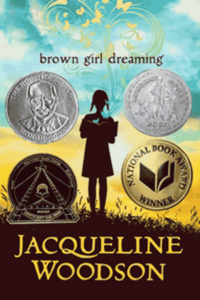
Born a Crime (Young Readers Edition) by Trevor Noah
This memoir showcases Noah’s life growing up in South Africa during apartheid where his parents’ interracial relationship was illegal. It provides insight into his experience navigating race and identity.
This graphic memoir tells Bell’s story of growing up with a hearing impairment, struggling to fit in, and realizing that her Phonic Ear may be a superpower. As readers learn about self-acceptance and friendship, the book challenges them to consider how they treat others who appear different than them.
Almost American Girl by Robin Ha
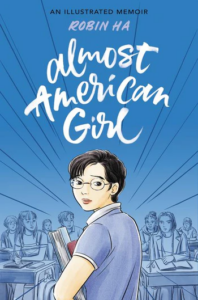
This memoir is honest and raw, and provides insight into the experience of growing up in poverty, struggling with family situations, and finding ways to cope in difficult situations.
When Stars Are Scattered by Victoria Jamieson and Omar Mohamed
This graphic memoir tells the story of Mohamed’s childhood experiences living in a refugee camp, taking care of his brother, and working to find his way to America. It leaves the reader with a deeper understanding of the refugee experience while also feeling hopeful.
Enchanted Air: Two Cultures, Two Wings by Margarita Engle
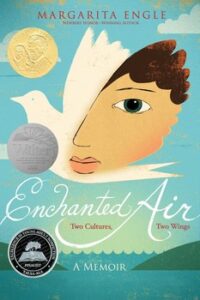
The Distance Between Us: Young Readers Edition by Reyna Grande
In this edition written for middle grade readers tells Grande’s journey from Mexico to America. It shares her experiences immigrating, being separated from her family, struggles with assimilation and grappling with her identity.
Bad Boy: A Memoir by Walter Dean Myers
Myers tells his story of growing up in Harlem in the 1940’s and how books helped him discover who he was and what he wanted to do. It is a story of overcoming obstacles, finding oneself, and the power of the written word.
Taking Flight: From War Orphan to Star Ballerina by Michaela DePrince
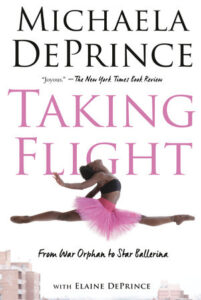
This classic book tells of Wiesel’s heartbreaking, horrific experiences during his life leading up to and during the Holocaust in death camps. It is story that exemplifies the importance of sharing one’s story and finding hope in a seemingly hopeless situation.
You Don’t Know What War Is: The Diary of a Young Girl From Ukraine by Yeva Skalietska
Using diary entries, Skalietska tells her story of living in Kharkiv with her grandmother when Russia invaded Ukraine and her difficult journey to seek safety that led her to a basement, a refugee center, and then Ireland.
Hey, Kiddo by Jarrett J. Krosoczka
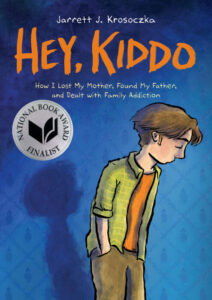
For other suggestions you might also explore this 2021 article on the School Library Journal site, 13 Biographies and Memoirs for Older Readers That Amplify Unheard Voices (Gr. 6-9)
Kasey Short (@shortisweet3) is the Middle School Director of Studies and an 8th Grade English Teacher and Advisor at Charlotte (NC) Country Day School. She loves to share ideas from her classroom and her leadership roles and writes frequently for MiddleWeb.
Kasey attended the University of North Carolina at Chapel Hill where she earned a bachelor of arts in middle school education with a concentration in English and history. She went on to earn a master’s in curriculum and instruction from Winthrop University.
Browse all of Kasey’s MiddleWeb articles here and follow her at Bluesky.




































I am curious as to why you don’t mention kids writing (and sharing) THEIR OWN Personal Stories.
Kasey does delve into students’ own writing under the subtitle “Personal Story Activities.” You may have missed that.
But totally agree with you about “The Power of Story”
As a student, I totally agree with activities of this sort. Often, reflecting on books seems like a boring writing response. Switching it up, using different activities, is a great way to keep students engaged.